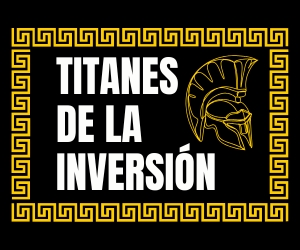WHO IS CHARLIE MUNGER? THE INVESTOR'S DEFINITIVE GUIDE
This in-depth analysis reveals how Charlie Munger's mental models, rational clarity, and long-term focus shaped one of the world's most respected investment philosophies.

Why He is Known
Charlie Munger was much more than Warren Buffett's right-hand man; he was the philosophical architect of the modern Berkshire Hathaway. Known for his relentless logic, sharp wit, and fierce devotion to rationality, Munger left an indelible mark on the investment world by introducing multidisciplinary thinking, mental models, and a strong rejection of conventional financial orthodoxy.
Born in 1924 in Omaha, Nebraska, Munger studied mathematics at the University of Michigan before enlisting in the U.S. Air Force during World War II. He later graduated in Law from Harvard University without having completed an undergraduate degree beforehand. His early career as a lawyer and real estate developer provided the practical foundation he would later rigorously apply to his investment approach.
He met Buffett in the late 1950s, and they quickly formed a partnership based on intellectual honesty and mutual respect. At a time when Buffett was still following Benjamin Graham's classic "deep value" method, Munger challenged him to evolve: to focus not only on cheap companies but on exceptional businesses with enduring economics. His influence was decisive in transforming Berkshire Hathaway from a mere tactical play into a true long-term asset-holding company.
Although he had less public exposure than Buffett, his impact was equally powerful. His speeches at annual meetings and in academic forums are considered masterclasses on mental discipline, critical thinking, and behavioral finance. His ability to distill complex ideas into brutally clear truths made him a reference among investors, entrepreneurs, and thinkers worldwide.
His Investment Strategy
Charlie Munger's investment philosophy cannot be separated from his intellectual worldview. He believed in rigorous rationality, continuous learning, and the power of a network of mental models: the integration of knowledge from multiple disciplines to make better decisions. For Munger, investing was not just about numbers, but about avoiding stupidity, staying within the circle of competence, and making slightly better than average decisions consistently over time.
From value to quality business: Munger convinced Buffett to move away from strict value investing to what he called “great businesses at reasonable prices.” Instead of searching for value remnants, he focused on sustainable advantages, high returns on capital, and strong corporate cultures.
The framework of mental models: One of his greatest contributions was the use of “mental models”: key principles taken from disciplines such as economics, biology, physics, psychology, and engineering. According to Munger, decision-making improves radically when adopting a multidisciplinary perspective instead of a narrow financial view.
Avoiding biases: Much of his writings and lectures focused on identifying cognitive biases that distort decisions. Anchoring, incentive bias, social proof, and availability were among his regular targets. His goal was not to be brilliant, but to be systematically less foolish.
Inverted investing and simplicity: Munger frequently repeated his motto: “Invert, always invert.” His process began by thinking backwards: what could make this fail? And then he avoided those causes. Coupled with his love for simplicity, this approach made him a master of prevention in both investing and life.
For Munger, success in investing did not depend on complex formulas, but on accumulated wisdom and character. As he himself said: “Take a simple idea and take it seriously.”
About Berkshire Hathaway
Berkshire Hathaway was the laboratory where Munger's ideas were put into practice on a large scale. While Buffett operated and communicated, Munger was the philosophical conscience: ensuring that every decision met the highest standards of clarity, integrity, and rational structure. Together, they built a conglomerate based not on trends or speed, but on intellectual solidity.
Munger's influence is etched into the DNA of Berkshire. He championed the decentralized management model that allows subsidiaries to operate autonomously, while capital allocation remains centralized. He also promoted the culture of partnering only with high-quality people and companies, avoiding market noise.
He was also one of the architects of Berkshire's "barbell" approach: concentrated investments in exceptional businesses on one side, and large amounts of cash or low-risk assets on the other. This mix of audacity and prudence is pure Munger essence.
His legacy continues not only through the leadership team that succeeded him at Berkshire but also through the intellectual disciplines he promoted. His influence marked not only Buffett but entire generations of investors, entrepreneurs, and decision-makers who now understand that doing fewer things, but doing them better — and for longer — is a long-term strategy rarely accepted by the market.
In an industry that rewards overconfidence and noise, Munger's quiet rigor and refusal to follow the trends remain a blueprint for investing with reason — and living with clarity.









